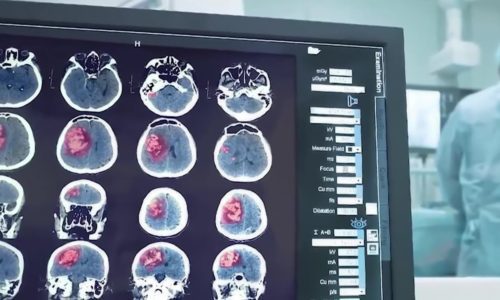Is it a headache or a migraine? |

A migraine is a specific type of headache that can cause severe, throbbing pain, often on one side of the head. Approximately 18 percent of women and 6 percent of men in the United States have migraine headaches. Migraine headaches can last anywhere from hours to days. The pain can be severe enough to keep you from doing your normal activities. There are good treatment options available for migraine headaches. If you suffer from headaches, I think you will find the Health Tip today very interesting.
What are the possible symptoms of a migraine headache?
- Severe throbbing or pulsing pain in the head
- Pain is often located on one side only, but may be on both sides, especially later in the headache
- Nausea and vomiting
- Sensitivity to light and/or sound, or less frequently to smell or touch
What is a migraine aura?
Migraines can actually progress through four stages. These stages are the prodrome, aura, attack, and post-drome. Most patients with migraines will not go through all stages. The aura is the most recognizable stage, but even the aura doesn’t happen in all migraine patients. The aura may happen in the immediate period prior to the onset of a migraine, or it may happen during the headache. Auras are caused by reversible changes in the nervous system that may last anywhere from 20-60 minutes.
Here are some examples of migraine auras:
- Visual changes – May include seeing flashing lights or bright spots in your vision, or maybe seeing shapes or wavy lines
- Vision loss – May affect one or both eyes
- Altered sensation – Such as a pins and needles sensation in an arm or leg
- Weakness or numbness – May be in the face or on one side of the body
- Difficulty speaking
What causes a migraine?
The truth is that the exact cause of a migraine is not well understood. There is research to suggest that the headache happens when brain cells trigger release of certain chemicals that cause narrowing of the blood vessels in the brain. Fluctuations in estrogen levels can also cause similar blood vessel changes. There also seems to be some interaction between the brain and certain nerves that can trigger pain. Although we don’t fully understand the exact cause, it does appear that genetic factors do play a role. Environmental and hormonal factors also play a role.
What are migraine triggers?
Even though the underlying cause may not be well understood, we have identified a number of things that can trigger a migraine headache to occur. Migraine triggers are different for each person with migraines. Here are some common triggers:
- Hormonal changes in women – hormone fluctuations related to menstruation, pregnancy, or perimenopause
- Changes in sleep patterns – especially too little sleep
- Changes in caffeine intake – either higher or lower than average caffeine intake
- Skipping meals
- Certain foods or drinks, or even food additives – such as aged cheeses, red wine, some fruits or nuts, processed meats, and MSG(monosodium glutamate).
When might a headache be an emergency?
If you have any of the following symptoms, you should see a doctor immediately:
- A severe headache that comes on abruptly, often described as a thunderclap
- A headache that is newly associated with numbness, weakness, or difficulty speaking
- A headache accompanied by high fever, stiff neck, confusion, seizure, or double vision
For more information about migraine headaches, including a more extensive list of migraine triggers, follow this link, https://www.mayoclinic.org/diseases-conditions/migraine-headache/symptoms-causes/syc-20360201
If you have any more questions just Ask Hanna, our health advisors are here to help.
Dr. Anita Bennett MD – Health Tip Content Editor
Image: ©Shutterstock / Maridav








